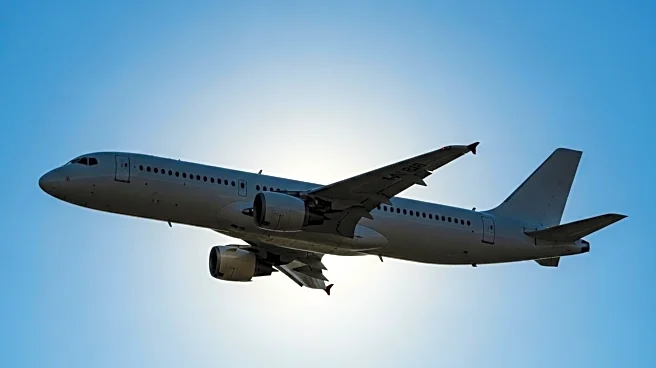What is the story about?
What's Happening?
The Federal Aviation Administration (FAA) has proposed a $3.1 million fine against Boeing due to safety violations related to the 737 Max aircraft. These violations include a significant incident in January 2024, where a door plug panel blew out on an Alaska Airlines Boeing 737 Max 9 shortly after takeoff from Portland, Oregon. Fortunately, the aircraft was safely landed back at Portland airport, and no serious injuries were reported among the 171 passengers and six crew members. The FAA's investigation, covering the period from September 2023 to February 2024, identified numerous quality system violations at Boeing's 737 factory in Renton, Washington, and at Spirit AeroSystems' factory in Wichita, Kansas. Additionally, the FAA found that a Boeing employee pressured a member of Boeing's ODA unit to approve a 737 Max airplane despite non-compliance with standards. Boeing has 30 days to respond to the proposed penalty.
Why It's Important?
This development is significant as it highlights ongoing safety concerns with Boeing's 737 Max, a model that has been under scrutiny following two fatal crashes in 2018 and 2019. The FAA's action underscores the importance of stringent safety standards in the aviation industry, particularly for manufacturers like Boeing. The proposed fine reflects the agency's commitment to enforcing compliance and ensuring passenger safety. For Boeing, this situation could impact its reputation and financial standing, as it continues to address safety and quality issues. The aviation industry, regulators, and passengers are closely monitoring Boeing's response and efforts to improve safety protocols.
What's Next?
Boeing is currently reviewing the FAA's proposed civil penalty and has stated its commitment to enhancing safety management and quality assurance in its operations. The company has implemented a safety and quality plan under FAA oversight. Boeing's response to the fine and its ongoing efforts to strengthen its safety culture will be crucial in determining its future relationship with regulators and its position in the aviation market. Stakeholders, including airlines and passengers, will be watching closely to see how Boeing addresses these challenges and whether further regulatory actions will be necessary.
Beyond the Headlines
The broader implications of this situation involve the ethical and operational standards within the aviation industry. Boeing's case highlights the need for transparency and accountability in manufacturing processes, especially when public safety is at stake. The incident also raises questions about the effectiveness of regulatory oversight and the role of corporate culture in ensuring compliance. Long-term, this could lead to more stringent regulations and a shift in industry practices to prioritize safety over production schedules.















